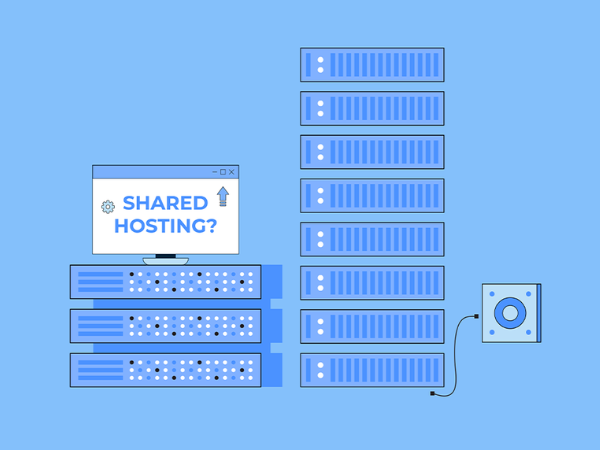Shared Hosting : A C...
Shared Hosting : A Complete Security Guide

Shared Hosting : A Complete Security Guide
Explore our comprehensive security guide for shared hosting. Learn essential tips and best practices to safeguard your website and data in a shared hosting environment. Secure your online presence with shared hosting today.”
The standard rule of thumb is that something hosted on the net can (and will) be hack. Internal sources can also be vulnerable to hacking and exposure. Anyone with an internet connection can access publicly hosted applications, making them more susceptible to exploitation. Almost all applications have at least one security vulnerability, if not more, that malicious actors can exploit to steal data or install malware on servers.
Shared hosting has a brought threat, as loads of websites hosted on one server grow the threat of being compromised. WordPress is regularly set up on shared hosting websites, making the server a goal for scanning and exploiting vulnerabilities. The foremost distinction between VPS, Dedicated Server, and Shared Hosting is the way you host your website. If a hacker receives right into a VPS or committed server, the vulnerability is not likely to have an effect on different customers. For example, if an attacker uploads malware to a VPS or committed server, the simplest websites hosted at the VPS or committed server might be affect. In a shared web website hosting environment, websites proportion server sources. The identical malware can have an effect on an unmarried server and loads of purchaser websites hosted at the server.
However, with shared hosting, one can mitigate the threats and safeguard security for the same if these steps are taken in advance. Here is your guide to shared hosting’s security.
1.Choose your OS properly
The hardware (Operating System) used for web hosting has an overall impact on performance and security. Older versions that are not support by the manufacturer risk unnecessary because fatal bugs are not fixe. CloudLinux OS Shared is optimize for servers hosting shared websites and controls CPU usage across the entire site. CloudLinux CageFS and LVE isolate each client site in a dedicated environment and allocate limited resources including CPU, community connections, and memory.
A new option is CloudLinux OS Solo, which one person can use to tune the operating system, including general performance monitoring and optimization tools.
2.Control PHP execution
Allowing someone to add a script and run it can bring down your site and allow an attacker to elevate your privileges. Also, scripts (eg Perl, shell scripts, PHP, etc.) should have limit privileges, all user scripts should be carefully monitor, and few execute privileges should be grant. . Downloads do not have to be executable, including PHP, so any feature that allows clients to add documents should have a filter to block identifiable malicious scripts.
3.Configuring directory permissions for shared hosting
When your shared hosting provider furnishes a server list, they establish permissions identical to those of the site owner. However, it’s essential for the site owner to precisely configure listing permissions. Errors in individual permissions can lead to the detection of malware, stolen information, or downloaded targets from the Internet.
4.Choosing a reputable hosting provider
Checking if your hosting provider handles security, backups, speed, uptime, and 24/7 chat support is crucial. Moreover, ensure they can effectively address DDoS attacks, malware, and viruses to safeguard your site. This is a factor as important as choosing a good security service or tool for your hosting.
The security solution can block many threats against hosting servers and their websites. However for hosting administrators, an excellent security solution enables proactive malware blocking and removal through advanced scanning and anti-malware technology. They reduce administrative costs and protect customer data automatically.
Conclusion
In case you feel that hosting is compromised, then you are jumping to conclusions. However, shared hosting is a secure choice, trusted by millions who rely on reputable providers. Like any web service, shared hosting requires proper care and attention. Therefore, we’ve provided valuable tips to help secure your shared hosting for the future. If you have any doubts pertaining to this article, please share the same with us.
